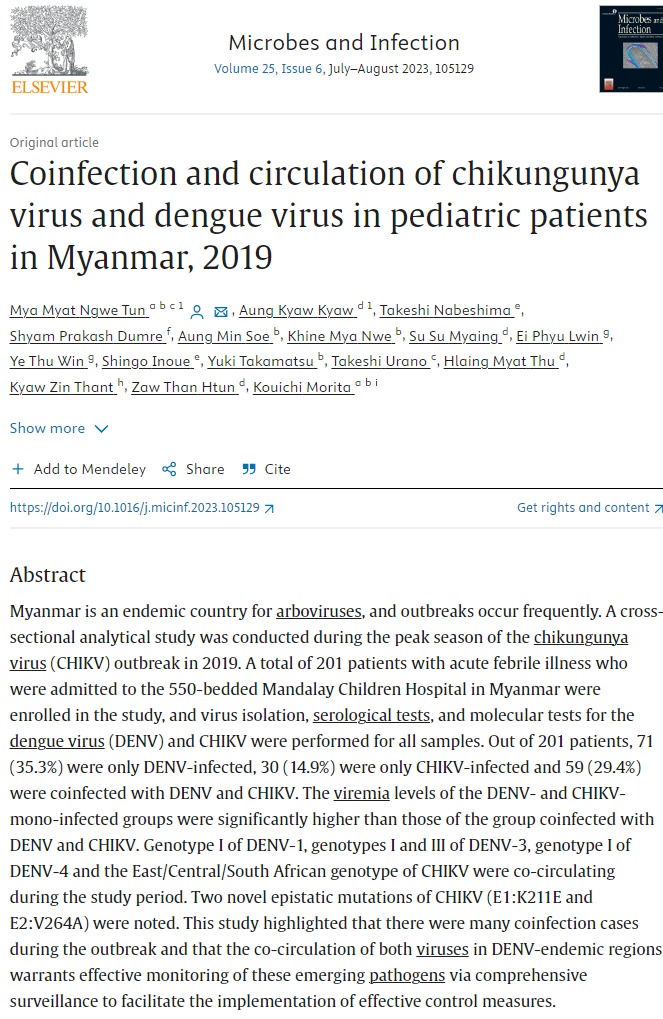

Myanmar is an endemic country for arboviruses, and outbreaks occur frequently. A cross-sectional analytical study was conducted during the peak season of the chikungunya virus (CHIKV) outbreak in 2019. A total of 201 patients with acute febrile illness who were admitted to the 550-bedded Mandalay Children Hospital in Myanmar were enrolled in the study, and virus isolation, serological tests, and molecular tests for the dengue virus (DENV) and CHIKV were performed for all samples. Out of 201 patients, 71 (35.3%) were only DENV-infected, 30 (14.9%) were only CHIKV-infected and 59 (29.4%) were coinfected with DENV and CHIKV. The viremia levels of the DENV- and CHIKV- mono-infected groups were significantly higher than those of the group coinfected with DENV and CHIKV. Genotype I of DENV-1, genotypes I and III of DENV-3, genotype I of DENV-4 and the East/Central/South African genotype of CHIKV were co-circulating during the study period. Two novel epistatic mutations of CHIKV (E1:K211E and E2:V264A) were noted. This study highlighted that there were many coinfection cases during the outbreak and that the co-circulation of both viruses in DENV-endemic regions warrants effective monitoring of these emerging pathogens via comprehensive surveillance to facilitate the implementation of effective control measures.
Keywords: 2019; Chikungunya; Co-infection; Dengue; Myanmar; Viremia.
Copyright © 2023. Published by Elsevier Masson SAS.